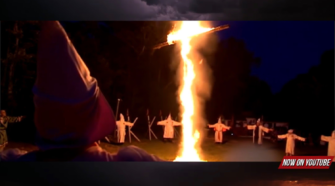The MUSIC BUSINESS HAS ALWAYS BEEN MORE BUSINESS THAN MUSIC! Many times in the space of CHH, we forget (or were never fully educated) that. The moment you decide to make your music available in a store, you also decided you’re doing music as a business.
A ministry is a service and provided free of charge to the patron. All costs are absorbed by those providing it. The moment an idea of exchange is introduced, it becomes a business transaction. That’s cool, as long as all involved parties are on the same page as to what’s happening. So in business, there’s a product or service being offered in exchange for currency…but what is the product? Is it the music or me?
In 2020, we’ve seen a lot…specific to this topic. We’ve seen the lid gets blown off of the music industry concerning labels and unfair deals. Most notably done by Mr. Kanye West. He shared that most record contracts are like slave deals, making the label the primary beneficiary of the artist’s work. He also shared that it is unreasonable and unfair of the percentages of auxiliary income artists get as well when they are the creators of the product that’s selling….or are they?
When we take a look at some of the biggest names in music…Kanye West, Kendrick Lamar, Taylor Swift, Megan the Stallion, Drake…etc. If you remember the first time you heard of them, it was likely after they signed a record deal. This is because the labels either created or scaled the artist through marketing and promotions.
It’s no different than if you create a video game. It could be the best new thing since Fortnite or Minecraft/Roblox but if nobody knows it exists, it’s only valuable to you. So what’s the next step? You look for a distributor and based on what you negotiate, you collaborate to get it to the masses. Ideally, the game would go viral and spread itself, but you partnered because the company has an established platform, system, and experience troubleshooting all of the potential issues that may come from the masses. It’s no different from the music artist.
The more conferences, webinars, and networking events I go to, the more I realize that this business has very little to do with the sound of the music and more to do with the brand or the artist. A brand is what consumers use to remember the product and without it, no product survives long. When a label signs you and wants the rights to your appearance, merch, and sound… it’s not because they want to own the individual as much as it is they want to have full control over their investment…how it is presented to the public, what other brands it is presented in conjunction with and how frequently it’s made available…Once you realize that the artist is the product, not really the music, it changes the perspective.
In sub-genres (like CHH), promoters know most artists are uneducated and take advantage of their desire to get in front of more people. The catch is, all people aren’t your target so the artist will give their last hopes that the promoter has given them a legitimate shot at “blowing up.” In order to keep from being taken advantage of (constantly), we need to be aware of what our brand is, and how to best market that. All fans aren’t equal. A 17-year-old fan and a 32-year-old fan with a family could enjoy the same artist, but their interactions with the brand could be totally different, and if the artist doesn’t market correctly, they’ll lose one…maybe both, but if done well, they retain both forever.
This is part three of the Finding My Way series by artist 2.0. Every week he takes a dive into how he’s survived in the industry. Read part one here. Read part two here.
14,926 total views, 0 views today














